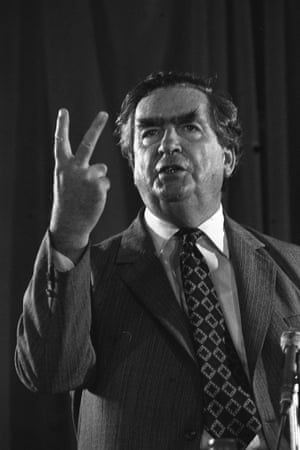 David Cameron could be forgiven if he enters the Tory
Conference week thinking about his place in history. This, after all, is a man who doesn’t have to
win another election, since he’s given himself a final term firewall against
any future electoral catastrophes. Not
only that, but he’s been able to witness Big Bad Jezza Corbyn’s utter
catastrophe of a party conference over the past week, with possibly only a few
hours off to mull over the deteriorating quality of western foreign policy
(currently sub-contracted out to the country formerly known as the Soviet
Union).
David Cameron could be forgiven if he enters the Tory
Conference week thinking about his place in history. This, after all, is a man who doesn’t have to
win another election, since he’s given himself a final term firewall against
any future electoral catastrophes. Not
only that, but he’s been able to witness Big Bad Jezza Corbyn’s utter
catastrophe of a party conference over the past week, with possibly only a few
hours off to mull over the deteriorating quality of western foreign policy
(currently sub-contracted out to the country formerly known as the Soviet
Union).
Corbyn is a delight in many ways. He’s not quite as different as a party leader
as some hopefuls are suggesting, admittedly.
George Lansbury and Michael Foot were also bizarre lefty true-believers
with a lofty disdain for practical politics, and both proved electorally
disastrous for the Labour party, albeit from a better intellectual vantage point
than the fuzzy minded Corbyn. But Corbyn
is the first of that mould to appear in the age of constant media, and his disdain
for the “media commentariat”, coupled with his notoriously badly structured,
dull black holes of speeches have all gone to contribute to the carefully spun
image of a man who is “authentic”.
Corbyn’s conference was a sheer joy for David Cameron. The Labour leader’s select-a-policy style,
and his refusal – or inability – to have his shadow cabinet speaking from anything like a single song-sheet, must all be making the current leasee of No. 10 Downing
Street giddy with the prospects of his future greatness. And Cameron has to think about his future
greatness as he has no more general elections to win.
What he does have, though, is a referendum to win and if he
is to finally rest on the front bench of Great Tory Leaders (Andrew Roberts
examines the competition in this piece for the Spectator this week) he will
need to ensure that he persuades the country – and much of his own party – to stay
in Europe. Whatever the Euro-sceptics
say, Cameron doesn’t see leaving Europe as much of a triumph for his avowedly
internationalist approach.
Musing on possible future greatness might have led Cameron
to read more carefully the obituaries of Denis Healey this weekend. Whether great or not – there is plenty of
scope for debate – Healey was one of the best known politicians of his
era. He was an early example of the “celebrity”
politician who could probably be recognised by the average don’t-care-about-politics-they’re-all-liars
voter in the street. Bushy eyebrows may
have helped, and the fact that he was thus easily caricatured by the greatest
performing impressionist of his day, Mike Yarwood, but Healey was also well
known because he was trenchant. He
rarely expressed modest views and wasn’t shy about condemning his
opponents. His reference to Geoffrey
Howe having all the savagery of a dead sheep in his parliamentary attacks has
been well recorded. Less often noted,
and more scathing, was his outraged condemnation of Margaret Thatcher as a
prime minister who “gloried in slaughter” during the Falklands War.
The problem for Denis Healey – who has received universally
positive obituaries – is that his greatest achievement was born out of
disaster. As Labour Chancellor of the Exchequer
during the awful 70s he had to advise a recalcitrant party that the days of
ambitious spending were over. He began –
in the teeth of massive Labour opposition – a sharp programme of
austerity. It was forced upon him by the
fact that he was the first – and to date the only – Chancellor to ask for a
loan from the IMF to tide the tanking British economy over.
I doubt that, when he entered politics after a heroic
military career during World War II, Healey envisaged his claim to greatness
resting on such a terrible reversal of fortunes. He spent the rest of his active political
career trying to persuade the Labour lefties of the need for responsible
policies and a need to appeal to centrist voters. He failed in this.



1 comment:
he election was lost not in the three weeks of the campaign but in the three years which preceded it...in that period the Party itself acquired a highly unfavourable public image, based on disunity, extremism, crankiness and general unfitness to govern.
Post a Comment